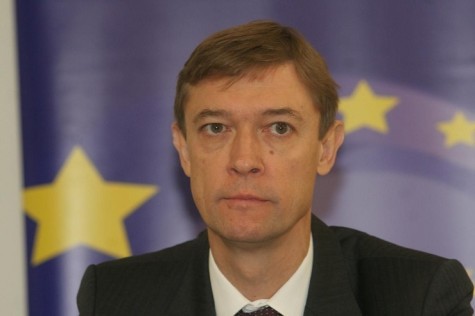Presentation of the Strategy for Agriculture and Rural Development 2014-2024
Palace of Serbia – 31 March 2015
Introductory Speech – Mr. Oskar Benedikt Deputy Head of the EU Delegation
• Your Excellencies, dear Minister, distinguished guests, ladies and gentlemen,
• It is my pleasure to join you today for the presentation of this important Strategy, a Strategy that will shape and guide Serbia’s agriculture and rural development sector throughout the coming decade, during a most critical period in the approach to, and quite possibly throughout, the accession of Serbia to the European Union.
• From the EU’s perspective we welcome Serbia’s adoption of the Strategy. It marks out the priorities for Serbia with preparations for EU accession and alignment with the Common Agricultural Policy at its heart.
• I think it’s important to highlight the linkages between several key elements of the strategy and the work that is being done to prepare and implement the IPARD Programme (Instrument for Pre-Accession Assistance in Rural Development).
• The Programme itself was officially adopted on 20 January this year. It forms that basis for the delivery of EUR 175 million of EU support, which will be offered in the form of grants to Serbian rural stakeholders to co-finance appropriate investments up to a maximum public contribution of 70% of eligible expenditure. This should lead to a total investment in the sector of approximately EUR 400 million (49 billion dinar).
• This investment will make a significant contribution to a number of the strategic objectives outlined in Serbia’s 10 year Strategy, announced here today by Minister Bogosavljevic, especially with regard to increasing competitiveness, sustainable resource management and environmental protection.
• However, before we reach this point, important work remains to be done throughout the next year to develop the institutional structures in readiness to complete the requirements for, what we refer to as, the entrustment of budget implementation tasks, essentially the Commission’s seal of approval for the IPARD institutions to start signing contracts and issue payments to recipients.
• These will be robust institutions, operating in a highly transparent and accountable manner, according to the EU demands for sound financial management and delivering well-programmed and well-monitored support to the sector over the medium to long term. This will provide vital experience, in readiness for the demands of full CAP implementation as an EU Member State in years to come. Again, this is full alignment with Serbia’s strategic objective for the effective management of public policies.
• I would like to underline one further point. IPARD preparations are not simply limited to the Ministry’s Managing Authority and Directorate for Agrarian Payments. NOW is also the time to prepare the associated bodies that have an important role to play in implementation, such as advisory services, planning permission authorities, delegated bodies, local authorities, banks, credit facilities etc. The preparedness of these bodies is essential if effective implementation is to be achieved in the initial years of the Programme.
• EU pre-accession rural development programmes have built up an impressive track record over the past 15 years, helping to transform the rural economies of candidate countries. Here and now, in Serbia, we are on the verge realising the great potential that exists and this offers us real cause for optimism.
• Finally, I would like to take this opportunity to commend the French and German administrations, for their support of the Serbian authorities in the preparation of the Strategy, as well as the World Bank, UNDP and GIZ.
• Thank you very much for your attention.




